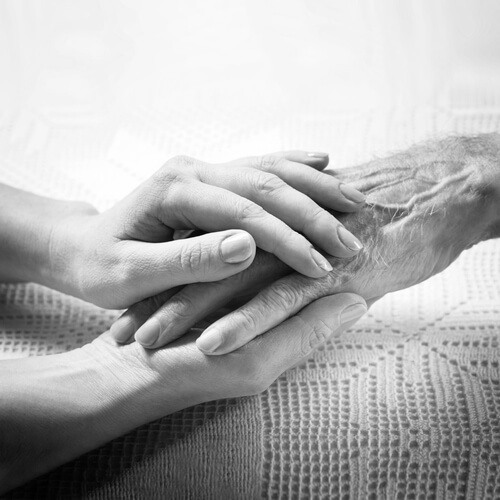The Role of a Hospice Chaplain
What does a hospice chaplain do? How does a hospice chaplain help patients and families?
Read MoreHere you'll find answers to many of your questions about hospice care. If you have additional questions, or would like further consultation, please contact us at Cura-HPC: 1(800) 797-3839.

The formal definition of hospice care is medical care provided to patients with a life expectancy of six months or less. The goal of hospice care is not to cure the patient, but rather to maintain and improve their quality of life for the time they have left. This allows patients to be as comfortable as possible, while continuing to have meaningful experiences.
Hospice care is provided by a team of compassionate, knowledgeable individuals including nurses, physicians, volunteers, therapists, and chaplains. This group works together to provide for the needs of both patients and their families.
In addition to medical care, hospice care also provides pain management, emotional and spiritual support, and other services tailored to each individual's needs.
Any individual who has received a diagnosis from their doctor with a life expectancy of six months or less is eligible to receive hospice care. Medicare recipients have no out of pocket expense when receiving the hospice benefit. This includes diagnoses of any type of illness including, cancer, Alzheimer's, lung, heart, or kidney disease, ALS, strokes, neurological diseases, or dementia.
Hospice care isn't limited to only six months, however.
After receiving care for six months, a patient can be recertified by a doctor and continue their care.
Hospice care is a fit for any individual, of any age. It's not about giving up. Rather, hospice care is for patients who want to be conscious, aware, and able to participate in their favorite activities for the time they have left.
Each individual patient's needs vary based on their illness, family's involvement, living environment and other factors. So, hospice services vary for each patient. Here are some services often included:
For additional information on services we often provide at Cura-HPC, consult our Hospice Services page.
Not all hospice providers are the same. It's recommended that you speak with multiple hospice providers in your area before making a decision. That's why it's also a good idea to begin your research before your need, or the needs of a loved one, are dire.
To begin your research, you can ask your doctor, hospital, state health department, or try searching the web.
Then, once you've compiled a list of hospice providers, you can begin interviewing them. Consider questions like these:
In addition to these common questions, feel free to ask anything else that's important to you and that will help you feel more comfortable about the hospice provider.
National Hospice and Palliative Care Organization
Helpful posts from our hospice blog:
What does a hospice chaplain do? How does a hospice chaplain help patients and families?
Read MoreMany cannot voice their preferences. Enter the POLST form.
Read More